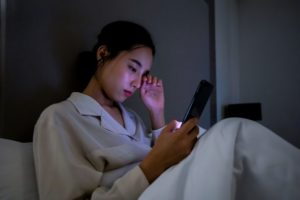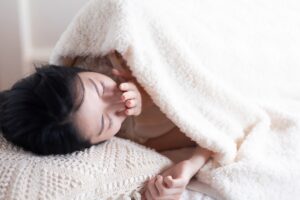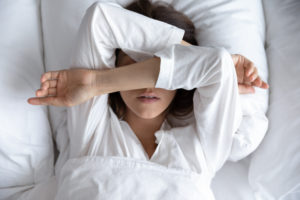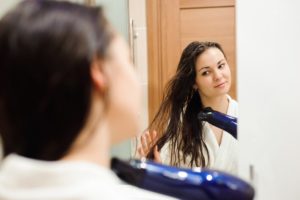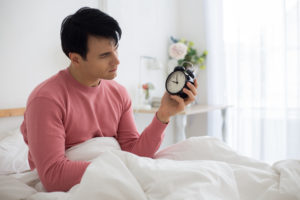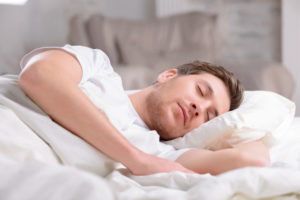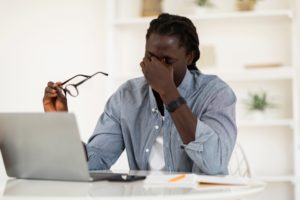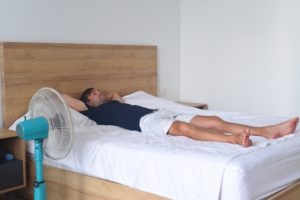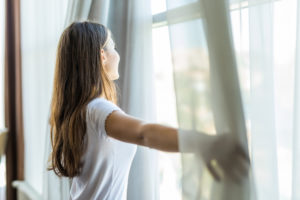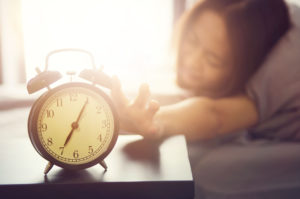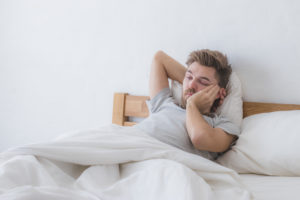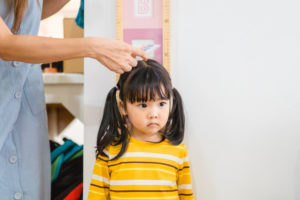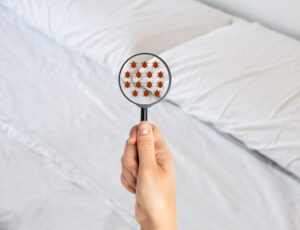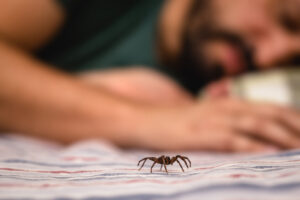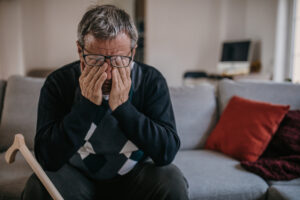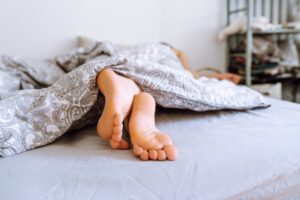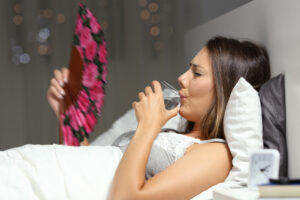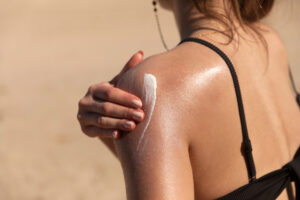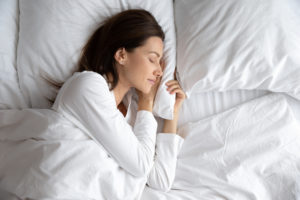When you buy through our links, we may earn a commission. Products or services may be offered by an affiliated entity. Learn more.
Why Do You Drool In Your Sleep?
Causes and Remedies Explained
- Drooling during sleep is common but may potentially lead to bad breath, dehydration, and feelings of embarrassment.
- Sleeping position, mouth breathing, health conditions, and medications can cause drooling.
- Changing sleep positions and treating allergies can help manage drooling.
- Consult a healthcare professional about treatment if drooling is continuous or severe.
If you wake up to a wet patch on your pillow in the morning, that drool is what is left of any excess saliva that escaped your mouth while you slept. We all produce saliva regularly, including when we sleep. People sometimes drool as a result.
Looking to improve your sleep? Try upgrading your mattress.
Is Drooling During Sleep Normal?
In many cases, drooling during sleep is normal. Saliva production varies over the course of a day, perhaps according to a circadian rhythm. Although people generally produce more saliva during the day and less at night, saliva production continues during sleep. This saliva performs the important task of keeping your mouth and throat lubricated which is required for good health. Continued saliva production during sleep leads to drooling and potentially bad breath, dehydration, and feelings of embarrassment.
Why Do I Drool in My Sleep?
Drooling occurs when you produce too much saliva, have trouble keeping the saliva in your mouth, or experience impaired swallowing. Producing excess saliva is known as sialorrhea or hypersalivation. Although drooling during sleep is normal, certain factors may cause you to drool more than normal.
Your Sleeping Position
Your sleep position can affect how much drool you find on your pillow in the morning. When a sleeper lies on their back, gravity generally causes any excess saliva they produce to stay in their mouth or travel to their throat. In side and stomach sleepers, on the other hand, gravity is more likely to pull saliva down toward the pillow, resulting in drooling.
If you are a side or stomach sleeper who sleeps with their mouth open, you may be even more likely to drool during sleep. Sleeping on your back may help minimize drooling. You can also take measures to breathe out of your nose and keep your mouth closed as you sleep, such as using mouth tape.
Infections and Allergies
If you are experiencing a cold, strep throat, or seasonal allergies, these conditions can inflame your sinuses and block your airways, causing you to breathe through your mouth and drool more than usual. Other infections, such as mononucleosis, tonsillitis, and sinus infections, can also lead to increased drooling.
Gastroesophageal Reflux Disease
Heartburn may be the most well-known symptom of gastroesophageal reflux disease (GERD), but drooling and dysphagia, or difficulty swallowing, are also common symptoms. People who experience dysphagia with GERD may feel like there is a lump in their throat, which can cause them to drool more often. Additionally, whenever your esophagus is irritated or obstructed, your body may respond by producing more saliva to relieve the irritation, leading to more drooling as a result.
Obstructive Sleep Apnea
Obstructive sleep apnea (OSA) is a sleep-related breathing disorder that causes temporary pauses in breathing while you sleep. Mouth breathing often accompanies or even worsens OSA. Mouth breathing during sleep may make drooling more likely, since drool can more easily escape when your mouth is open. Talk to your doctor if you experience any additional symptoms of OSA, including:
- Snoring, gasping, or choking while asleep
- Waking up during the night
- Morning headaches
- Difficulty focusing during the day
- Daytime sleepiness
Bruxism
Drooling commonly accompanies sleep bruxism, or teeth grinding during sleep. This could be a result of bruxism’s association with mouth breathing, since saliva is more likely to leave the mouth when a person keeps their mouth open during sleep. In addition to drooling and mouth breathing, other common risk factors for bruxism include snoring, restlessness, and shorter sleep times.
Medication Side Effects
If you take prescription medications and drool at night, your medication may be a potential cause of the drooling. Excessive salivation and drooling are side effects of certain medications, including some antibiotics, antipsychotic drugs, and medications used to treat Alzheimer’s. If drooling is listed as a potential side effect of your medication, do not stop taking your medication. Instead, speak with your doctor first about your concerns, and ask if they can recommend an alternative medication that will not cause you to drool as much.
Underlying Medical Conditions
Your nervous system stimulates your salivary glands, which may explain why impaired swallowing and excessive drooling are common with neurodegenerative disorders. For example, around 70% of people with Parkinson’s disease and up to 80% of people with cerebral palsy experience excessive salivation. Difficulty swallowing and excessive drooling may also occur as a result of:
- Epiglottitis
- Bell’s palsy
- Amyotrophic lateral sclerosis (ALS)
- Huntington’s
- Stroke
- Traumatic brain injury
How to Stop Drooling in Your Sleep
Drooling while you sleep is normal, and does not necessarily require treatment. That said, if you believe you drool excessively, there are a number of strategies you can try to stop drooling in your sleep, from lifestyle changes to speech therapy, medication, and surgery. Some treatments are simple, while others are only recommended for more severe cases of drooling. Make an appointment with your doctor to discuss what is right for you.
Change Sleeping Positions
The easiest action you can take to relieve your drooling is to change your sleep position. If you sleep on your side or your stomach, try switching to your back.
Be aware that while changing your sleep position, you may need to get a new pillow to sleep comfortably. Side sleepers typically use a much thicker pillow than back sleepers use, while stomach sleepers use a much thinner pillow, or no pillow at all. If you are having trouble staying on your back throughout the night, place additional pillows along the sides of your body to help you stay in position.
Treat Allergies
If you drool at night and have allergies, your allergies might be the culprit. Allergy treatment could open up your sinuses and enable you to breathe more through your nose, instead of your mouth. If you are able to breathe through your nose as you sleep instead of your mouth, you may experience less drooling.
Consider Botox Injections
Botulinum toxin injections, such as Botox, are considered a safe, effective treatment for excessive drooling since they have few side effects. Injecting botulinum toxin into your salivary glands can prevent them from overproducing saliva. Be aware that these injections are not a permanent solution, and you will need to get more injections when the effects wear off after a few months.
Wear a Mandibular Device
Mandibular devices are a type of appliance you wear in your mouth while you sleep. They are designed to help reduce drooling, snoring, and teeth grinding by keeping your lips closed and your tongue and teeth in the right place.
Try Speech Therapy
Speech therapists can teach you exercises that strengthen your tongue and jaw muscles, improving their stability. With speech therapy, you may be able to swallow better, better breathe with your mouth closed, and reduce drooling.
Ask About Medications
People with neurological conditions may be prescribed medication to stop drooling. These medications reduce drooling by blocking the nerve impulses to your salivary glands. However, they commonly produce side effects, such as an overly dry mouth.
Ask About Surgery
In severe cases of hypersalivation, your doctor may recommend surgery. A few types of surgery are used to treat drooling, including surgical removal of the salivary glands, alteration of salivary gland ducts, and reduction of nerve connections to salivary glands. Typically, surgery is reserved for people who also drool during waking hours, and even then it is considered a last resort, after all other options have been attempted and found not to work. Studies suggest surgery for drooling works well, with up to 89% of people seeing improvement.
When to Talk to Your Doctor
Drooling in your sleep is normal. But, if you are worried you are drooling too much, set up an appointment with your healthcare provider. They can assess whether your drooling could be a sign of an underlying health condition, and provide personalized advice on how to drool less during sleep.

Still have questions? Ask our community!
Join our Sleep Care Community — a trusted hub of sleep health professionals, product specialists, and people just like you. Whether you need expert sleep advice for your insomnia or you’re searching for the perfect mattress, we’ve got you covered. Get personalized guidance from the experts who know sleep best.
References
12 Sources
-
Bavikatte, G., Sit, P. L., & Hassoon, A. (2012). Management of drooling of saliva. British Journal of Medical Practitioners, 5(1), a507.
https://www.bjmp.org/content/management-drooling-saliva -
Freudenreich, O. (2005). Drug-induced sialorrhea. Drugs of Today (Barcelona, Spain: 1998), 41(6), 411–418.
https://pubmed.ncbi.nlm.nih.gov/16110348/ -
Kalf, J. G., Bloem, B. R., & Munneke, M. (2012). Diurnal and nocturnal drooling in Parkinson’s disease. Journal of Neurology, 259(1), 119–123.
https://pubmed.ncbi.nlm.nih.gov/21698387/ -
A.D.A.M. Medical Encyclopedia. (2019, September 16). Drooling. MedlinePlus.
https://medlineplus.gov/ency/article/003048.htm -
MedlinePlus: National Library of Medicine (US). (2016, August 31). Swallowing disorders.
https://medlineplus.gov/swallowingdisorders.html -
Boyce, H. W., & Bakheet, M. R. (2005). Sialorrhea: A review of a vexing, often unrecognized sign of oropharyngeal and esophageal disease. Journal of Clinical Gastroenterology, 39(2), 89–97.
https://pubmed.ncbi.nlm.nih.gov/15681902/ -
Spicuzza, L., Caruso, D., & Di Maria, G. (2015). Obstructive sleep apnoea syndrome and its management. Therapeutic Advances in Chronic Disease, 6(5), 273–285.
https://pubmed.ncbi.nlm.nih.gov/26336596/ -
Lee, S. H., Choi, J. H., Shin, C., Lee, H. M., Kwon, S. Y., & Lee, S. H. (2007). How does open-mouth breathing influence upper airway anatomy? Laryngoscope, 117(6), 1102–1106.
https://pubmed.ncbi.nlm.nih.gov/17464234/ -
Guo, H., Wang, T., Li, X., Ma, Q., Niu, X., & Qiu, J. (2017). What sleep behaviors are associated with bruxism in children? A systematic review and meta-analysis. Sleep & Breathing = Schlaf & Atmung, 21(4), 1013–1023.
https://pubmed.ncbi.nlm.nih.gov/28396971/ -
Lakraj, A. A., Moghimi, N., & Jabbari, B. (2013). Sialorrhea: Anatomy, pathophysiology and treatment with emphasis on the role of botulinum toxins. Toxins, 5(5), 1010–1031.
https://pubmed.ncbi.nlm.nih.gov/23698357/ -
Farber, N. M., Perez-Lloret, S., & Gamzu, E. R. (2015). Design and development of a novel supportive care product for the treatment of sialorrhea in Parkinson’s disease. Current Topics in Medicinal Chemistry, 15(10), 939–954.
https://pubmed.ncbi.nlm.nih.gov/25832720/ -
Hockstein, N. G., Samadi, D. S., Gendron, K., & Handler, S. D. (2004). Sialorrhea: A management challenge. American Family Physician, 69(11), 2628–2634.
https://pubmed.ncbi.nlm.nih.gov/15202698/






